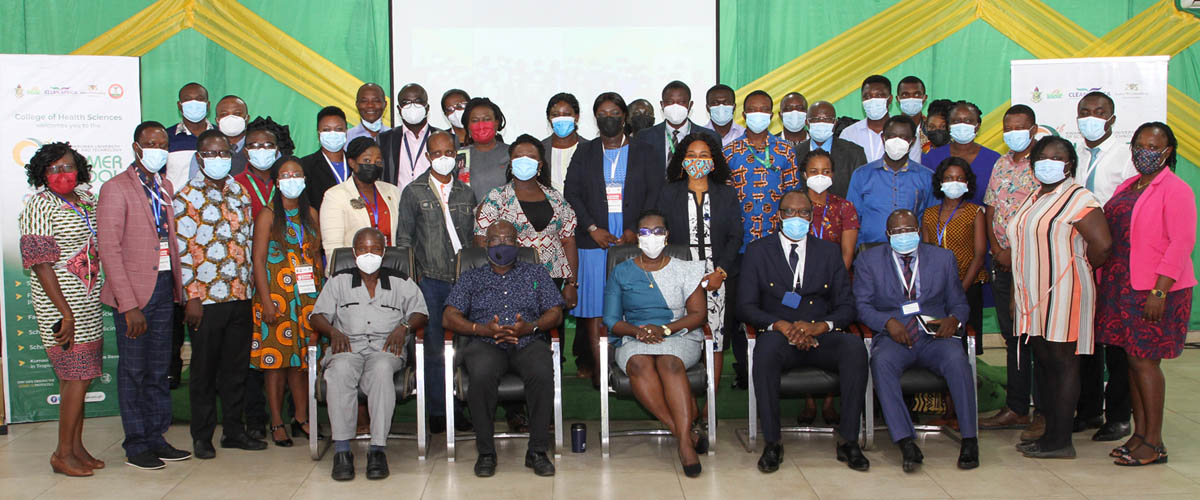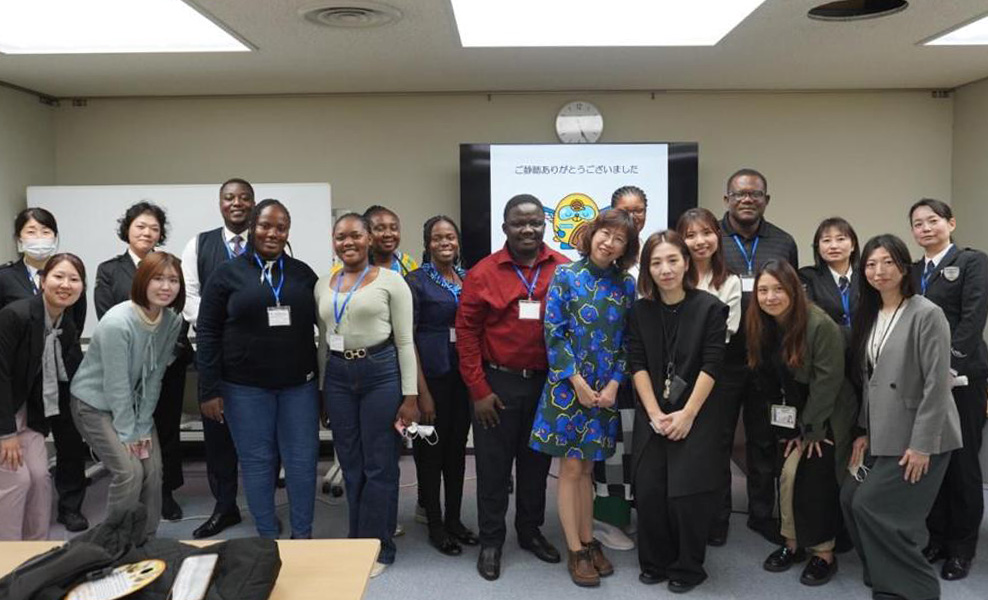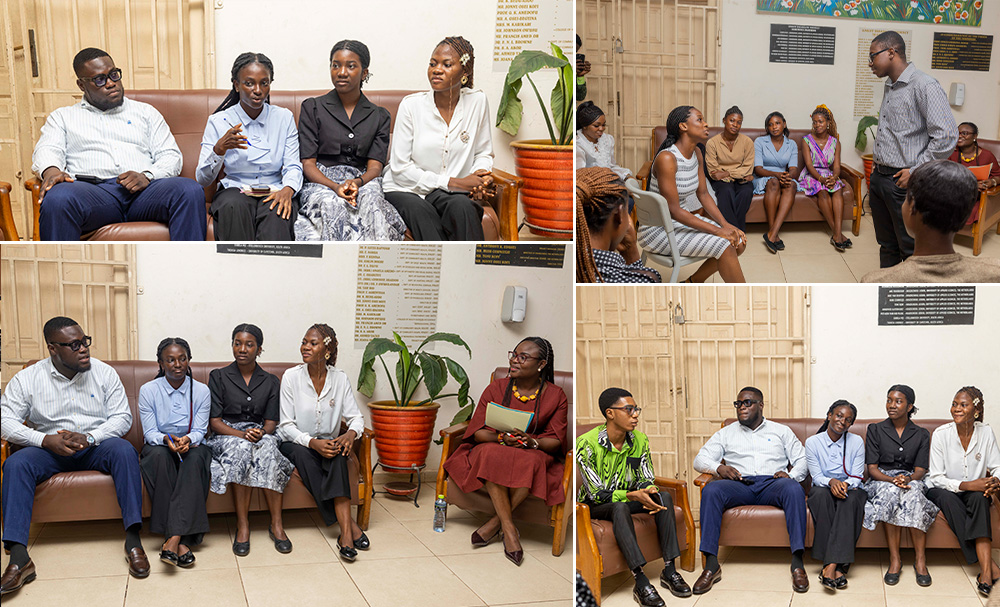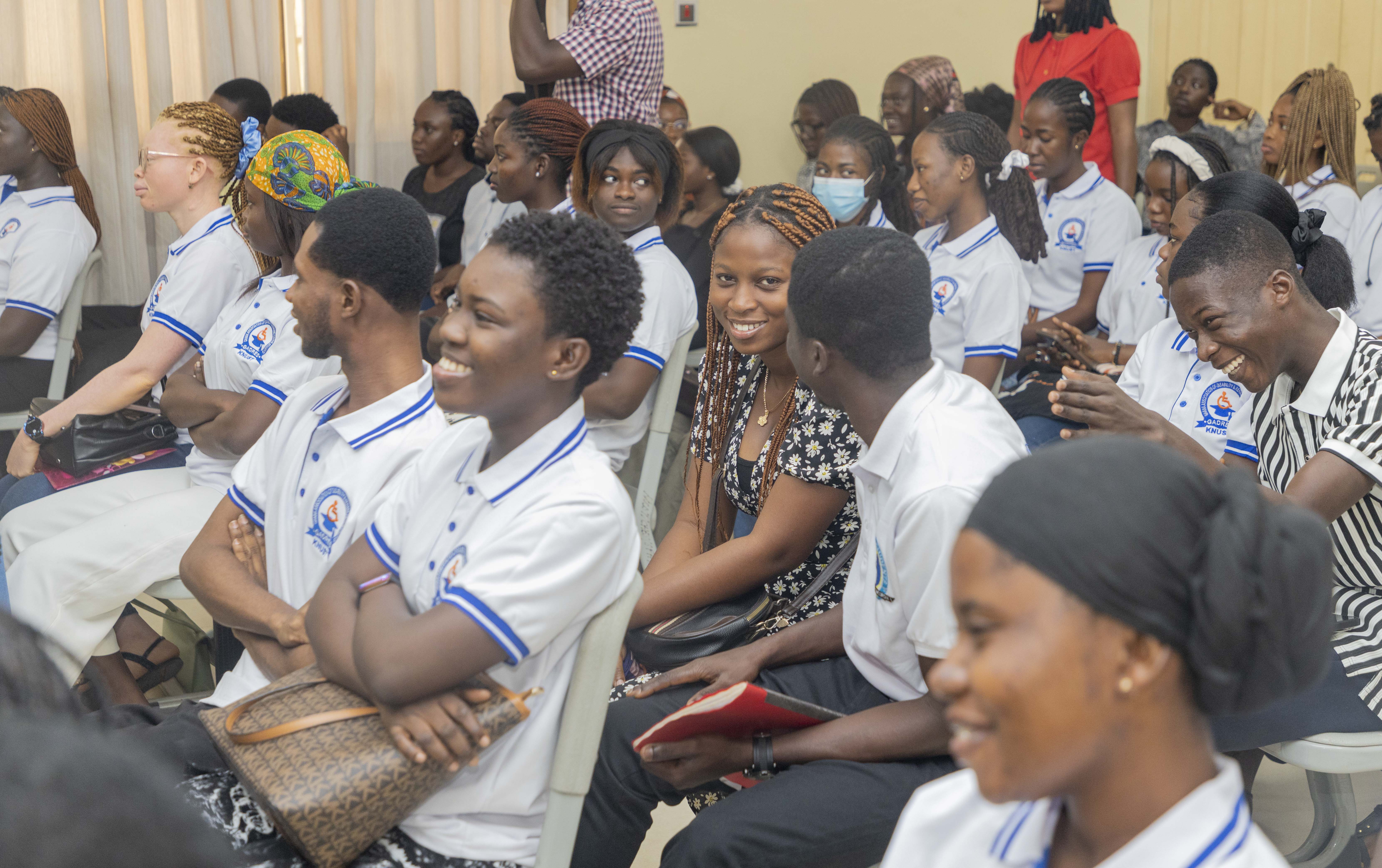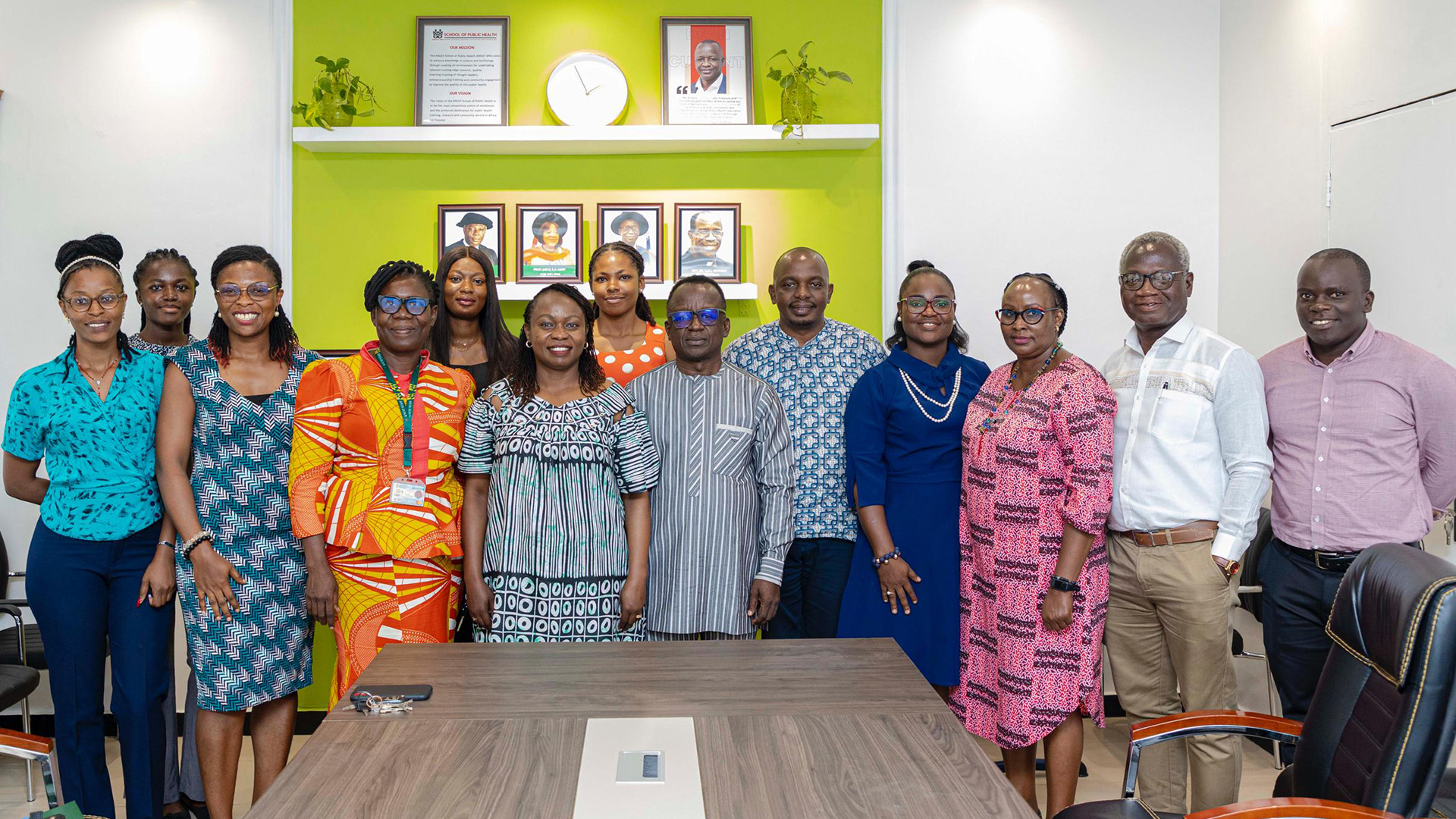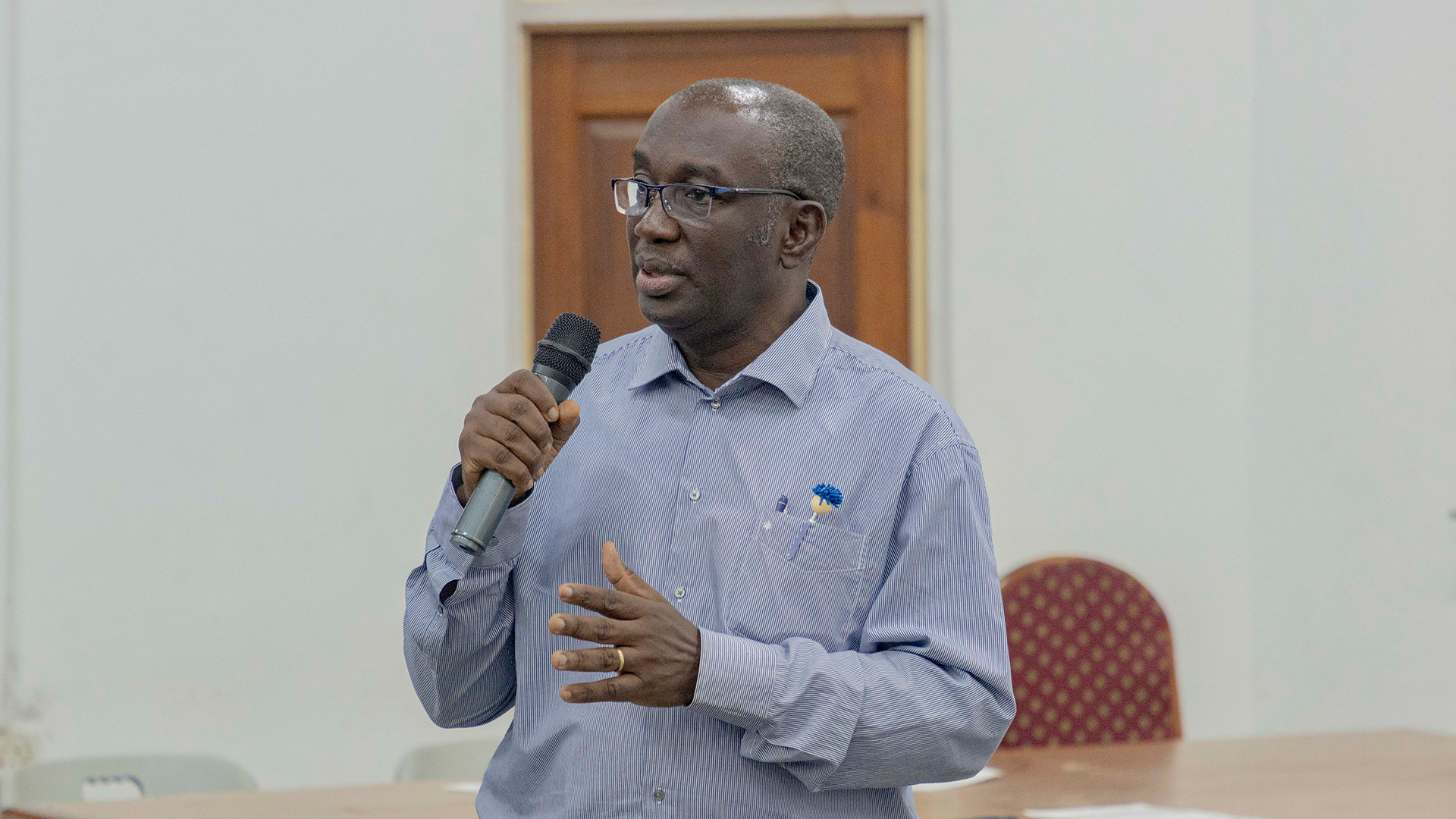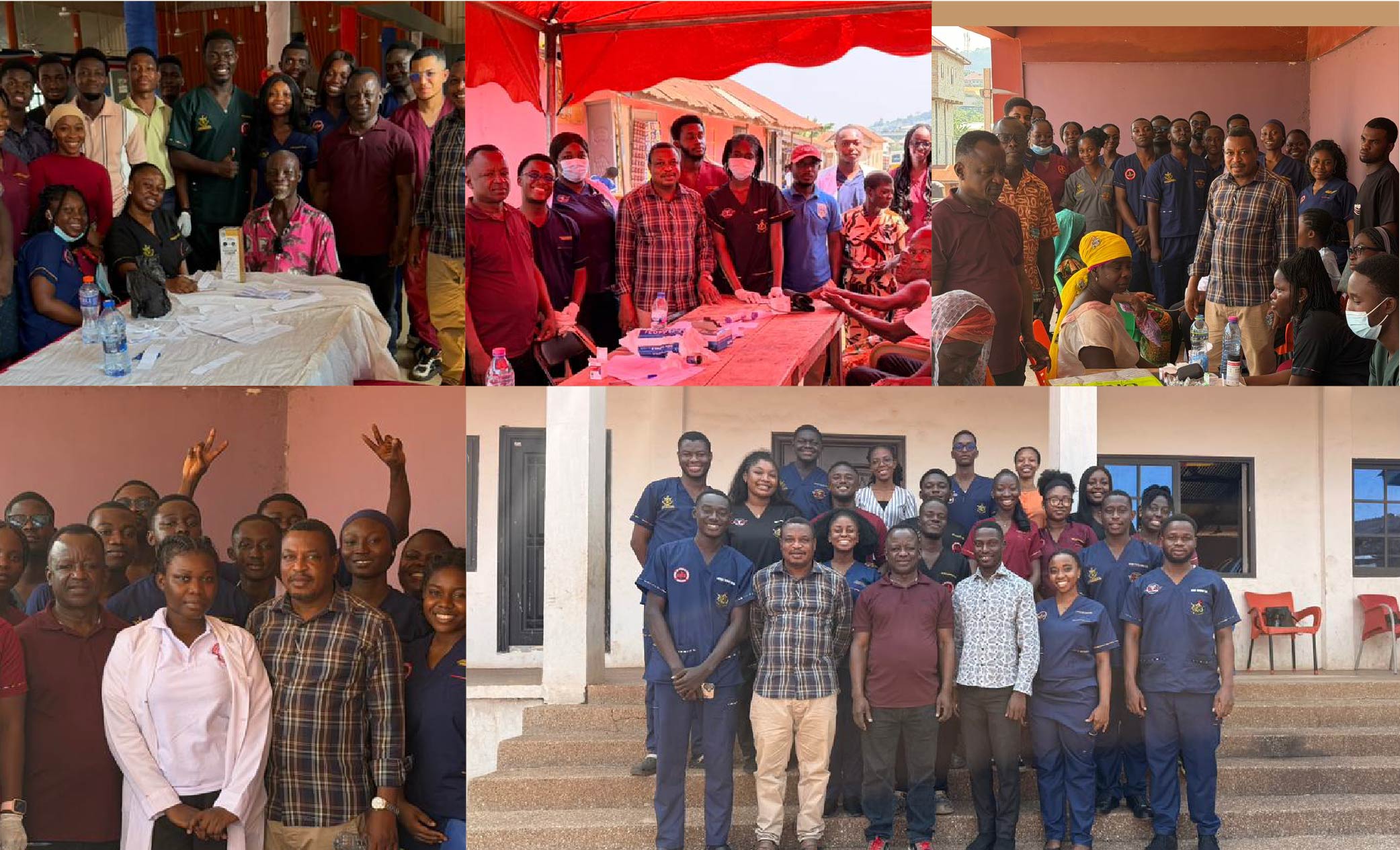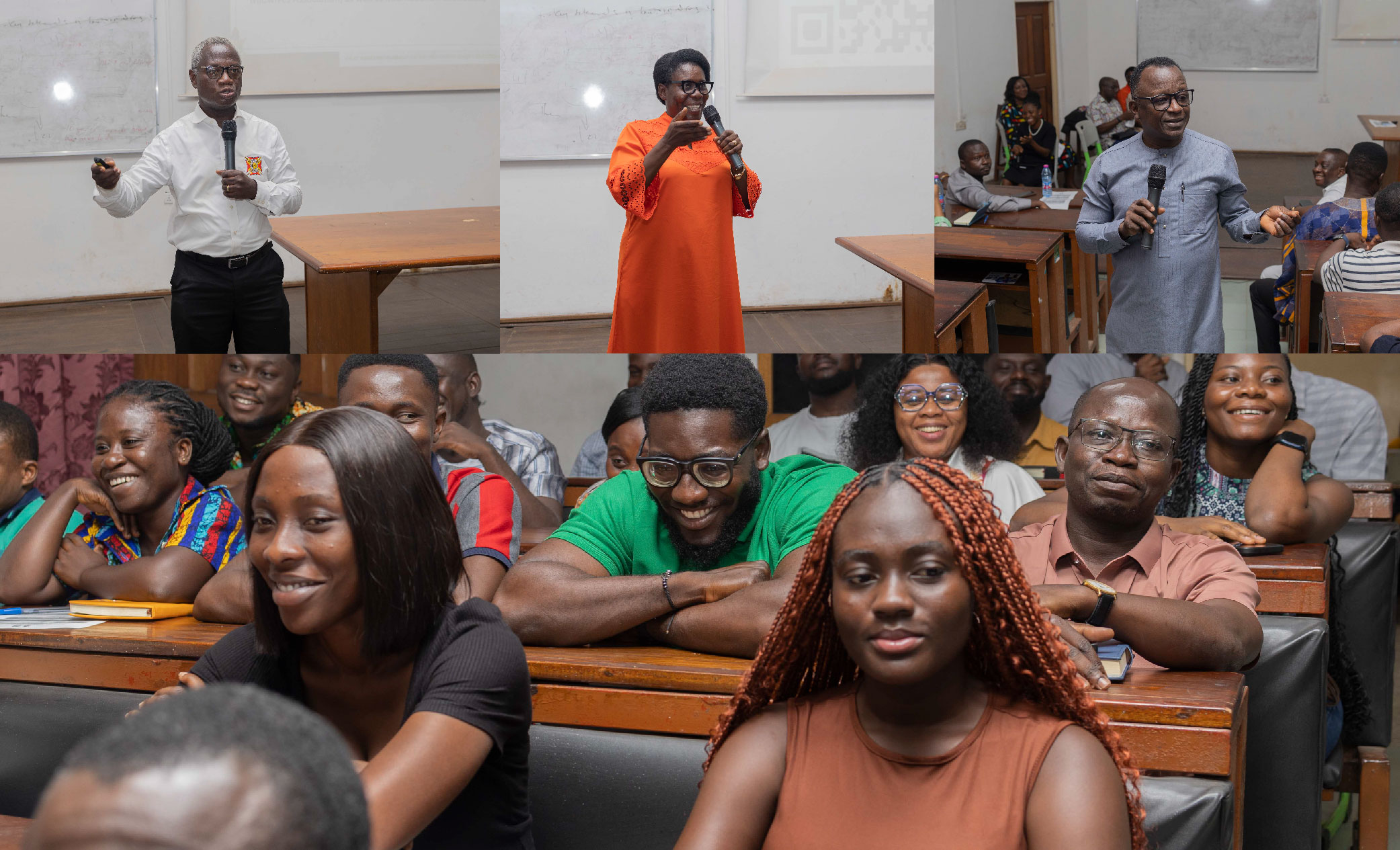The 9th KNUST Summer School, an event on the University’s calendar came off from the 31st August 2021 to 3rd September 2021. The 3-day event received huge patronage from the members of the university management, representatives from affiliate institutions, resource persons, the university staff, and invited guests.
This year’s Summer School was under the theme “SDGs and Universities: Actions towards KNUST’s mandate at 70 and beyond”. It had a revamp as a hybrid event with a mix of both in-person and online sessions. Also, this year’s summer school activities were decentralized to the Colleges for greater impact of all activities with the involvement of all the staff ranks.
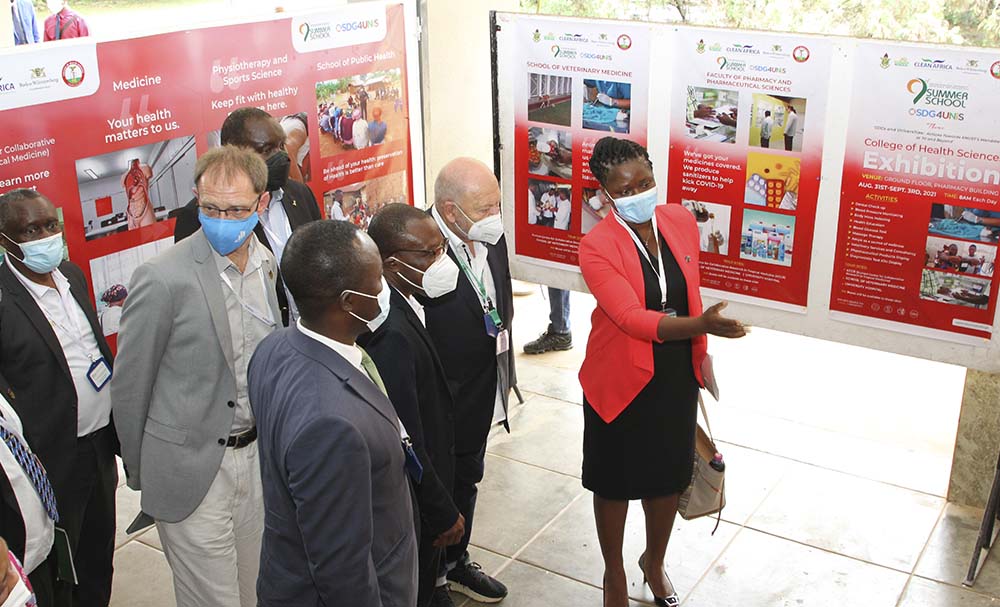
The opening day of the 9th Summer School took place at the Great hall with two sections. The event commenced with an opening and a welcome address from Prof. Jerry John Kponyo (Head, Quality Assurance and Planning Unit, KNUST) and Prof. Rita Akosua Dickson (Vice-Chancellor, KNUST).
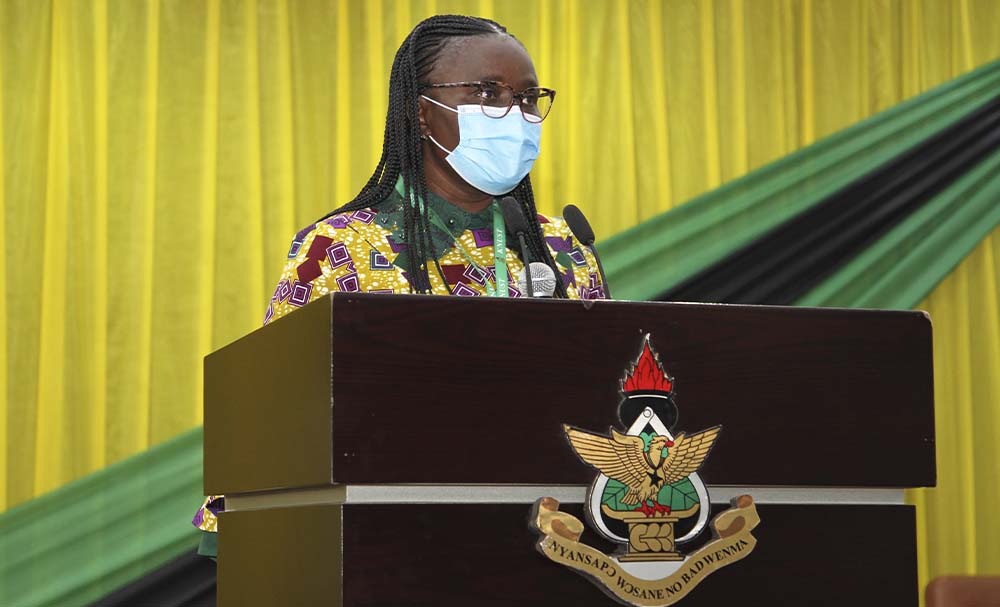
There were series of presentations by resource persons and exhibitions were held at the various Colleges to showcase their products, facilities, and research works.
The College of Health Sciences welcomed a number of guests to the Ground floor of the Pharmacy building where exhibitors from the various schools/faculties displayed their research works, outreach programmes, products, specimen, and some clinical activities. Buses were also made available to the School of Veterinary Medicine and KCCR where equipment and research findings were also exhibited.
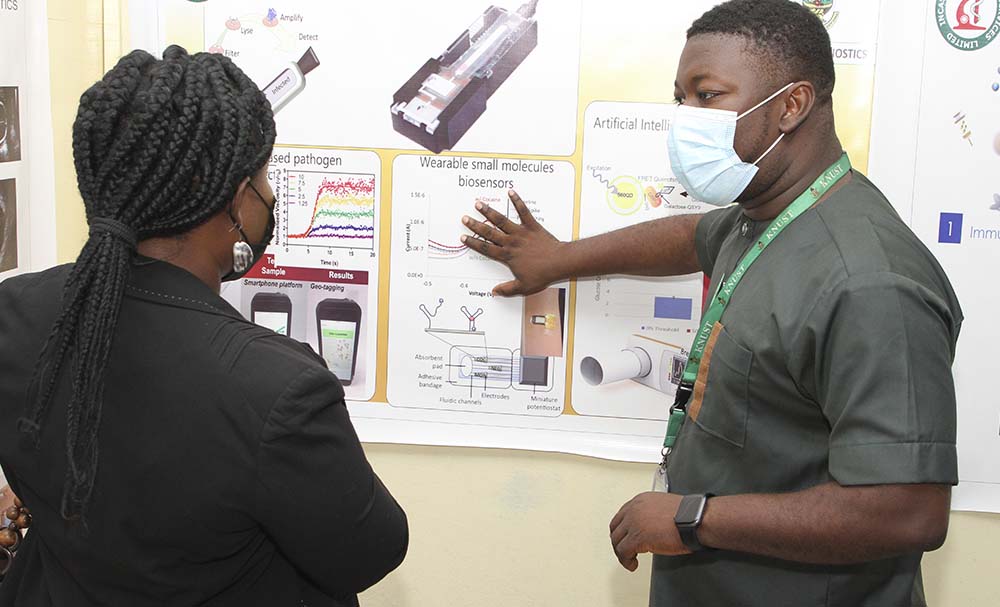
Day two of the Summer School continued with the exhibition, presentations, and the World Café which was basically group discussions on the topics given. Prof. Ellis Owusu-Dabo (Pro Vice-Chancellor) made the first presentation where he spoke about the core areas and values of KNUST indicating the primary areas as research, teaching, and community service. He stated that these are not separate entities but feed into one another. Prof. Owusu-Dabo also made it known that the core values of the university under these core areas are leadership in innovation and technology, as well as demonstrating and cultivating cultural excellence in everything and to avoid mediocrity to help address the SDGs.
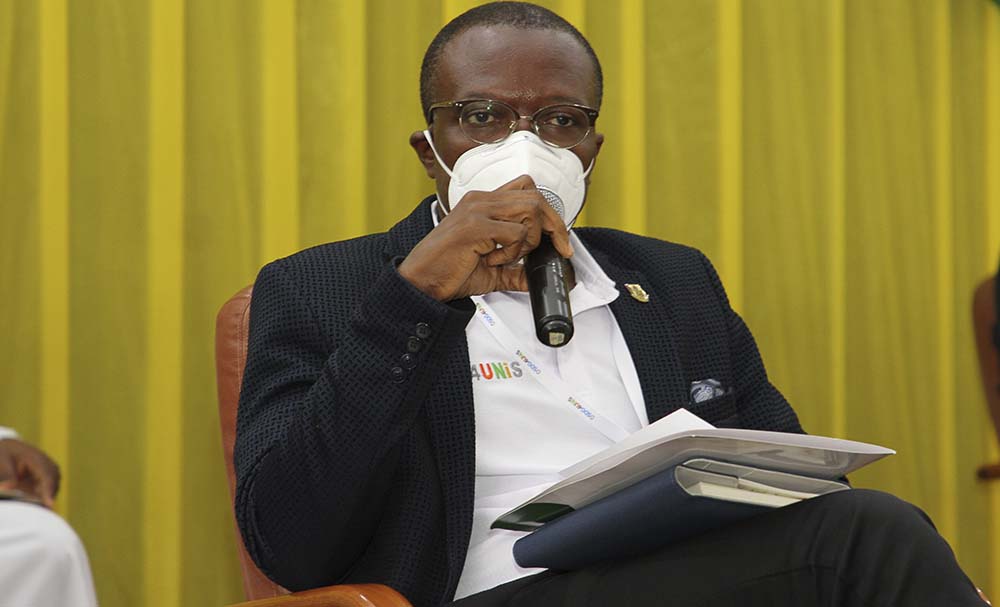
The second presentation was made by Prof. Daniel Ansong (Dean, School of Medicine and Dentistry). In his submission, He spoke on the need for sensitization and awareness of the 17 SDGs as staff to plan our activities in line with the college, departments, and other units to help achieve these goals. Prof. Ansong recommended the need to brand the SDGs as a university, citing the University of Manchester as an example. He also recommended the College compare its current activities with the indicators of the SDGs to have a clearer view of the way forward.
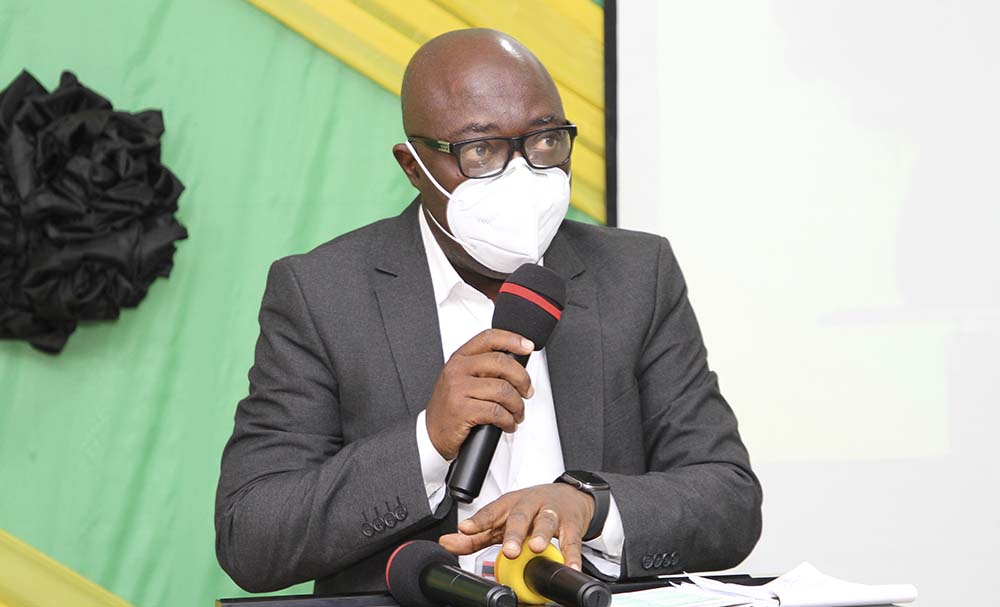
Prof. Frances T. Owusu-Daaku (Professor, Department of Pharmacy Practice) made a presentation dubbed “What are our strengths, what are our gaps and opportunities as a College/Unit?” She commenced by exposing the audience to the mission, vision, and mandate of the College and how the SDGs fit into these. Prof (Mrs). Owusu-Daaku made mention of the SDGs been interrelated although the most relevant to the College appears to be that of SDGs 3 and 4.
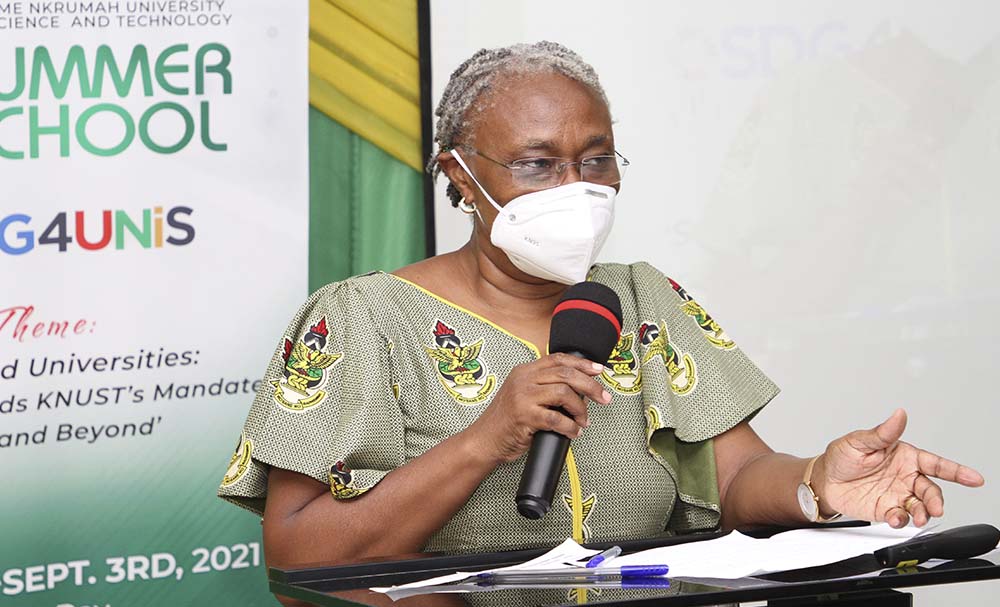
She mentioned some strengths of the College which included high-quality academic, professional, and administrative support staff and the production of well-trained graduates with specialized professions for the job market as well as the highest KNUST research output per capita. Prof. Frances T. Owusu-Daaku also hammered on the need to insist on fairer partnerships that will help achieve SDG 17and encouraged participants to deliver and uphold integrity and accountability.
The next presentation was done by Dr. John H. Amuasi on “How do issues from the college/unit align with the university’s priorities and values?” He made mention of KNUST’s common engagement which has to do with improving quality of life which aligns with the SDG. He further elaborated on the role of each Department in the College in achieving the SDGs. Dr. Amuasi concluded that the College is doing a lot in achieving the SDGs but there was more room for improvement.
World Café 1 and 2 presentations were made on the topics “Strategies for Mapping out existing plans and actions in the College/ Unit” and “Strategies for identifying opportunities, gaps, and priorities within the SDGs for a college/ unit” respectively. There were break-out sessions where members were put in smaller groups to discuss the topics on board and then. This gave the opportunity to everyone to fully participate in the whole programme.
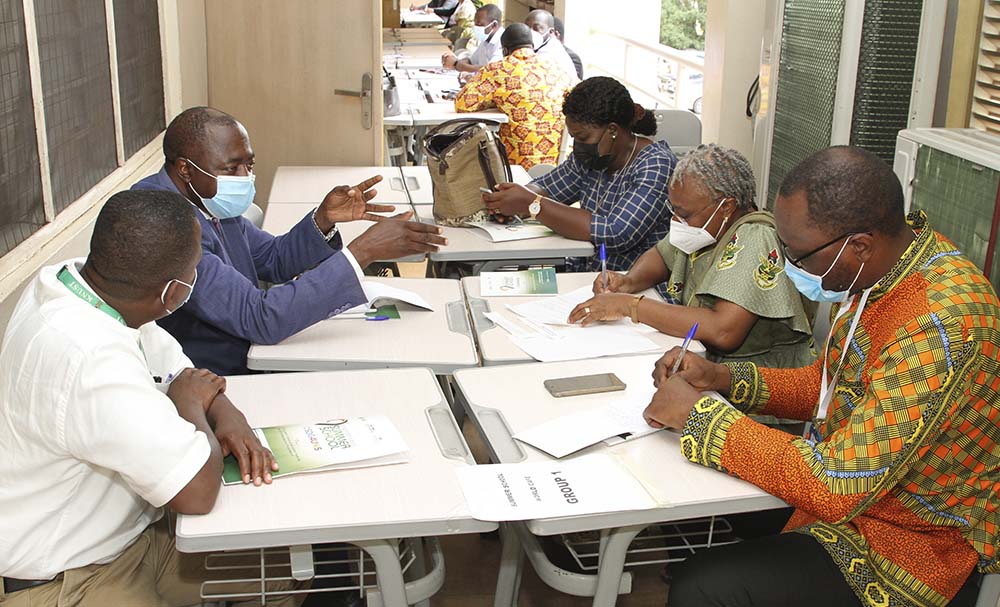
The exhibition at the Pharmacy building, ground floor continued after all the presentation sessions were done.
Day two ended with closing remarks from Dr. John H. Amuasi. He mentioned that the focus on SDG was critical for the university looking at the direction of the world in contemporary times. He also concluded on the need to get the university to the world ranking of universities’ SDGs which will help us easily rise to the top.
The third day of the Summer School continued with the exhibition, presentations, and World Café 3. The presentations were held on the first floor of the Pharmacy building. Prof. Fotso Wabo Ghislain made the first presentation on the topic “How can we use the SDG framework to improve and showcase what we currently do?” He used YaBiNaPa; SDG Graduate School as a model for implementing the SDG in the field of natural chemistry. He tackled the question of how sustainable research and irrigation are being implemented in Graduate school and how to improve what is currently done. He went on to state that YaBiNaPa can do more by being more efficient on data management, creating SDG staff in the University for Awareness on SDG, and certifying laboratories.
Dr. John H. Amuasi gave presentations on two topics. The first presentation was themed “What are the area of common interest within the university? Can we use these linkages as the basis for collaboration?” He identified areas of common interest and that for collaboration. He touched on the vision of KNUST and spoke of possible collaborations within and outside the university community. He then touched on four elements of the mission of the University which had a common interest with that of the College. The next topic he touched on was dubbed “What are the structural barriers/challenges? What needs to change to promote more action?” He elaborated on some key barriers within the College and KNUST as a whole. Some barriers highlighted were SILOED projects within Departments in the same School and with Schools in the university which mostly affects SDGs 8, 9, 11, 12, and 17. Another challenge was quality versus quantity of students. Dr. Amuasi commended the College for producing lots of students which had generated revenue for the University but also recommended the use of open space like technology for the improvement of quality which could help achieve SDGs 8, 9, and 12. He also cited the use of online platforms for lectures during the Covid-19 pandemic and tasked the College to always be proactive and not wait till the last minute.
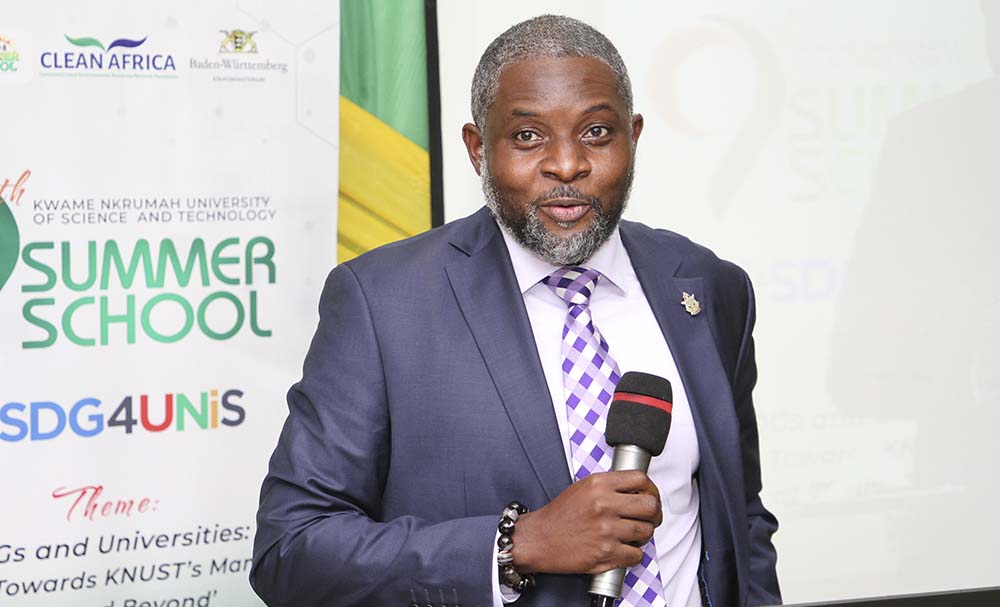
Prof. Bruno Lenta Ndjakou from Cameroon gave a presentation on the topic “Strategies for monitoring, evaluating and communication of SDG actions.” He gave a brief history of how YABINABA SDG Graduate School was established and the progress made over the years. He mentioned how the fight against microorganism-causing diseases is of public health concern in Cameroon. Prof. Ndjakou mentioned the importance of global awareness, collaboration, and partnership in achieving the SDGs and how happy and willing he was to receive colleagues from KNUST to serve as principal investigators at his institution.
The World Café 3 took place where participants were divided into three groups and each group was given questions to discuss. The general assertion was how to incorporate SDGs in the day-to-day running of the College and our communities. Also the integration of SDGs in the training and teaching of our students.
The closing ceremony was held at the Great Hall, Dr. (Mrs) Ama Amuasi represented the College of Health Sciences and she touched on the vision of the College which was embedded in the vision of the University. She further stated that as part of the University’s mission to improve the quality of life for all members, the College will make a significant contribution with its expertise.
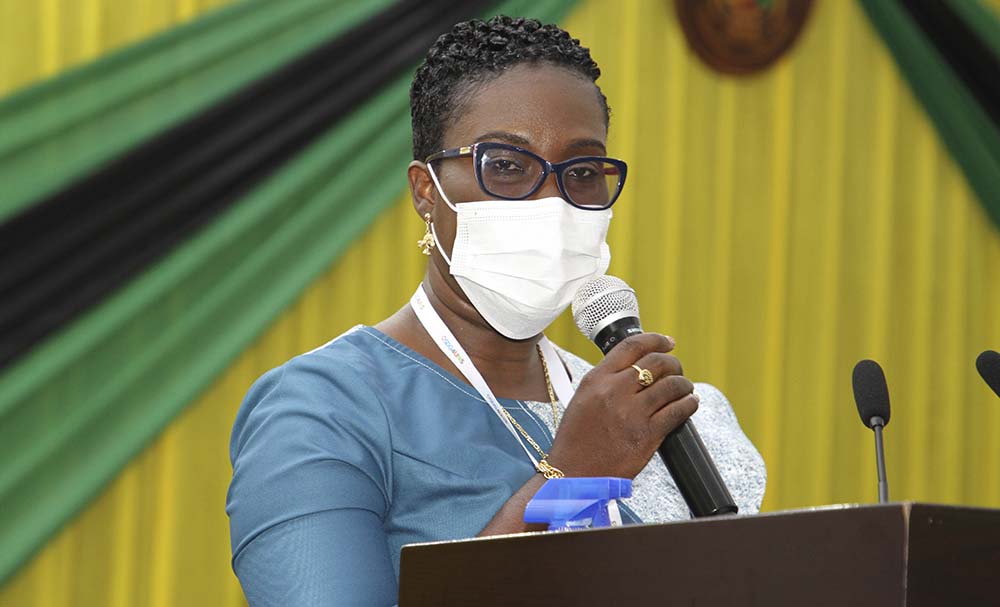
The 9th Summer School ended on a high note with encouraging feedback from participants and stakeholders making reference to the fact that all ranks of the university staff were inclusive in the activities outlined for the event. This ensured that all participants were fully involved in all activities and acquired new knowledge in Sustainable Development Goals (SDGs).


